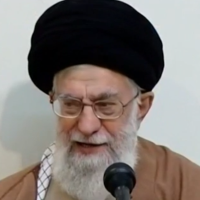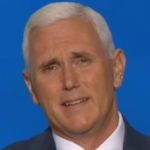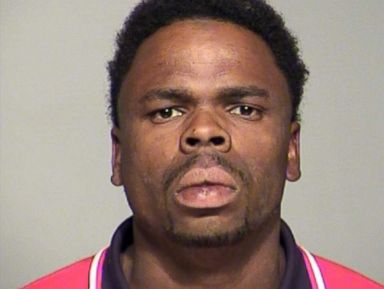
Vice President Mike Pence falsely claimed that former President Barack Obama “repeatedly failed to express America’s solidarity with the Iranian protesters” in 2009.
Republicans at the time criticized Obama for what they viewed as a slow response to the Iranian protests that followed the contested presidential election of June 12, 2009. That’s a matter of opinion. However, it’s not accurate to say Obama “repeatedly failed to express solidarity” with the protesters. If anything, it was the opposite:
- On June 15, 2009, on the third day of protests, Obama said he was “deeply troubled by the violence” against protesters and urged Iranian leaders to respect “the ability of people to peacefully dissent.”
- On June 20, 2009, Obama urged the Iranian government “to stop all violent and unjust actions against its own people,” and declared that the U.S. “stands with all who seek to exercise” free speech and the right of assembly.
- On June 23, 2009, Obama said: “I strongly condemn these unjust actions, and I join with the American people in mourning each and every innocent life that is lost.”
Pence made his remarks in a Jan. 3 opinion piece in the Washington Post. The vice president praised President Donald Trump for his response to the latest wave of Iranian protests, which started on Dec. 28, 2017, in the city of Mashad over economic conditions and soon spread elsewhere in Iran.
A day after the protests started, the State Department issued a statement saying the U.S. “strongly condemns the arrest of peaceful protesters.” On the same day, Trump tweeted his support for the protesters.
Many reports of peaceful protests by Iranian citizens fed up with regime’s corruption & its squandering of the nation’s wealth to fund terrorism abroad. Iranian govt should respect their people’s rights, including right to express themselves. The world is watching! #IranProtests
— Donald J. Trump (@realDonaldTrump) December 30, 2017
https://platform.twitter.com/widgets.js
In his op-ed, Pence compared the U.S. response now with what happened in 2009, when supporters of former Prime Minister Mir-Hossein Mousavi protested the outcome of the Iranian presidential election.
On the night of June 12, 2009, early election returns showed Iranian President Mahmoud Ahmadinejad comfortably on his way to reelection. But Mousavi denounced the ballot counting as fraudulent and declared himself the winner, according to the Washington Post account at the time.
His supporters gathered in the streets of Tehran after midnight to celebrate his claim to victory until police dispersed them with tear gas, the Post wrote.
Pence, Jan. 3: In the wake of the demonstrations and the regime’s brutal attempts to suppress them, President Barack Obama repeatedly failed to express America’s solidarity with the Iranian protesters. As a member of the House Foreign Affairs Committee, I recognized the lack of action for what it was: an abdication of American leadership.
The United States has long stood with those who yearn for freedom and a brighter future, and yet the president declined to stand with a proud people who sought to escape from under the heavy weight of a dictatorship, issuing only a delayed response condemning the regime’s violence.
Initially, the Obama administration — which was hoping to begin negotiations with Iran on a nuclear weapons deal — took a wait-and-see approach to reports of election fraud.
In a June 14, 2009, interview on NBC’s “Meet the Press,” Vice President Joe Biden said the Obama administration would pursue nuclear talks with Iran, despite the contested election results.
“Look, talks with Iran are not a reward for good behavior,” Biden said. “They’re only a consequence if the president makes the judgment it’s in the best interest of the United States of America, our national security interests, to talk with the Iranian regime. Our interests are the same before the election as after the election, and that is we want them to cease and desist from seeking a nuclear weapon and having one in its possession, and secondly to stop supporting terror.”
Biden also said he had his doubts about Ahmadinejad’s claim that the election was “free and fair,” but he said the Obama administration would take a wait-and-see approach. “We’re going to withhold comment until we have a, you know, a thorough review of the whole process and how they react in the aftermath,” Biden said.
The next day, then-House Republican Whip Eric Cantor criticized what he described as “the administration’s silence.” But that changed on the very day that Cantor made his critical remarks.
Even though the protests started on June 13, 2009, the Associated Press said “the worst violence since the disputed election” occurred on June 15, 2009. The AP initially reported that one person died, but later reports put the number of dead at 12. It was on this day that Obama first addressed the protests.
At a joint press availability with the prime minister of Italy, Obama was asked whether the violence would affect his willingness to negotiate with Iran and what message he had for the protesters.
Obama, June 15, 2009: I want to start off by being very clear that it is up to Iranians to make decisions about who Iran’s leaders will be; that we respect Iranian sovereignty and want to avoid the United States being the issue inside of Iran, which sometimes the United States can be a handy political football — or discussions with the United States.
Having said all that, I am deeply troubled by the violence that I’ve been seeing on television. I think that the democratic process — free speech, the ability of people to peacefully dissent — all those are universal values and need to be respected. And whenever I see violence perpetrated on people who are peacefully dissenting, and whenever the American people see that, I think they’re, rightfully, troubled.
Five days later, on June 20, 2009, Obama issued a statement that CNN described as his “strongest to date on the Iran situation.” Obama’s statement, in part, read: “The Iranian government must understand that the world is watching. We mourn each and every innocent life that is lost. We call on the Iranian government to stop all violent and unjust actions against its own people. The universal rights to assembly and free speech must be respected, and the United States stands with all who seek to exercise those rights.”
On June 23, Obama stepped up his criticism of Iran, starting a White House press conference by strongly condemning the violence against protesters.
“The United States and the international community have been appalled and outraged by the threats, the beatings and imprisonments of the last few days,” Obama said. “I strongly condemn these unjust actions, and I join with the American people in mourning each and every innocent life that is lost.”
A month later, the Iranian government said that 30 people had died, although the Guardian reported that at least 80 people had died.
It’s true that Obama was criticized for not making an earlier or a more forceful statement, and readers can judge for themselves whether Obama’s statements were appropriate or sufficient. But Pence is wrong to say the former president “repeatedly failed” to express solidarity with the Iranian protesters.
The post Response to Iranian Protests, Then and Now appeared first on FactCheck.org.


 FactCheck.org Rating:
FactCheck.org Rating: 
